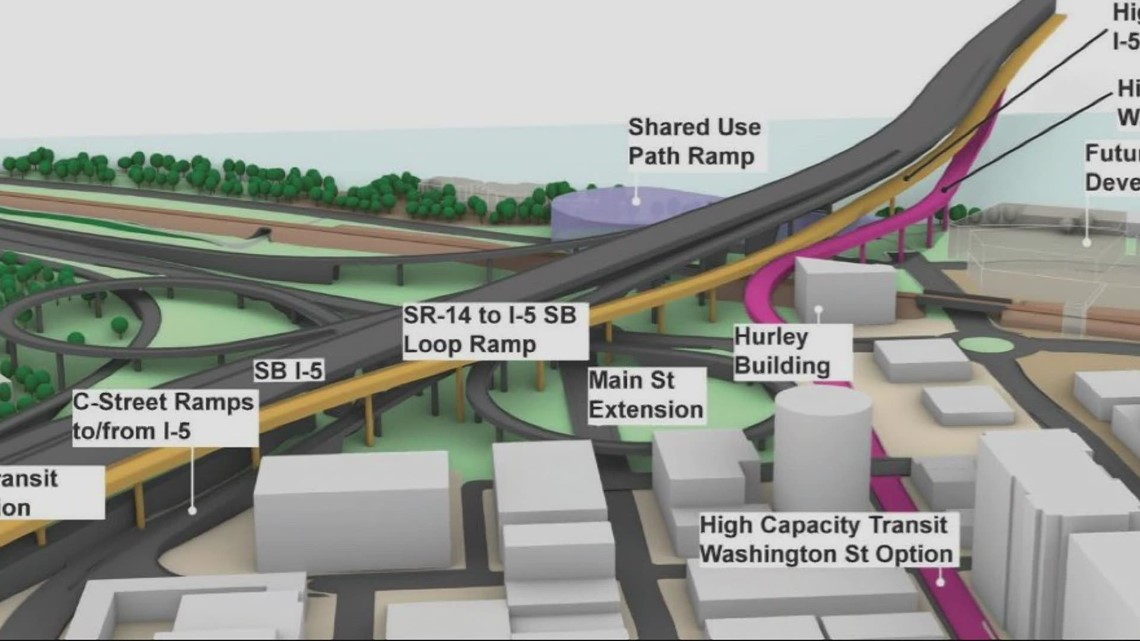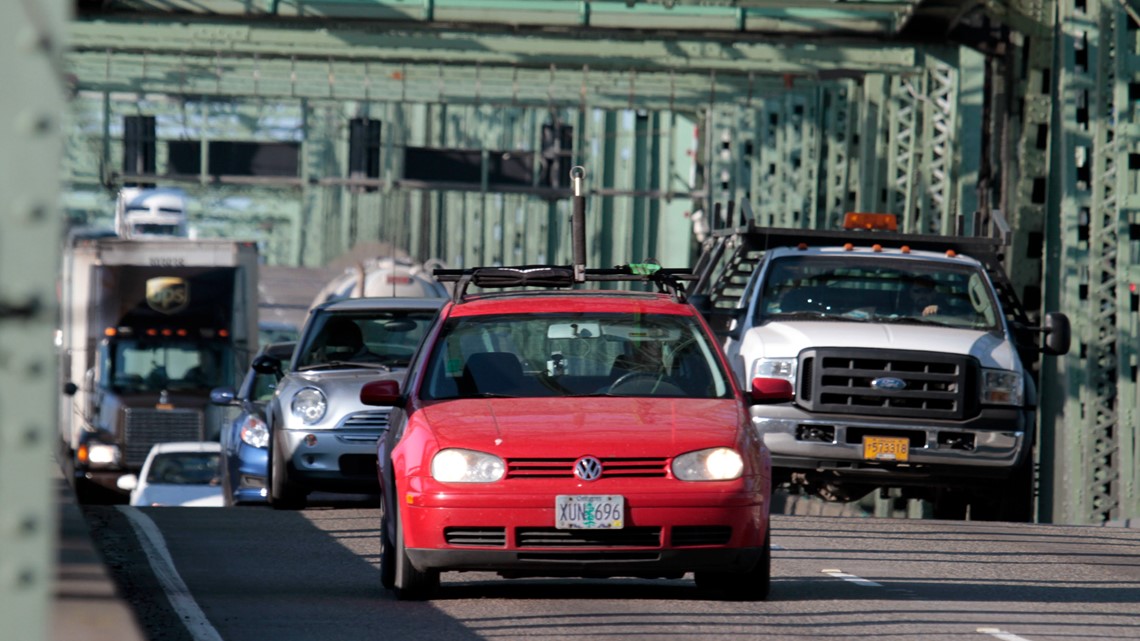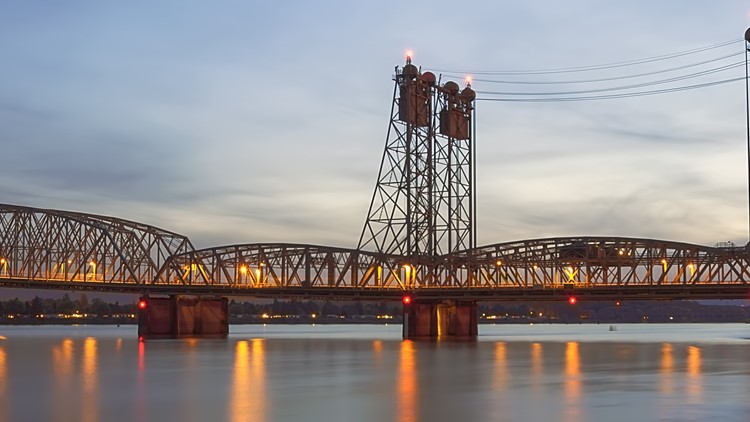OLYMPIA, Wash. — There were many reasons why the Columbia River Crossing (CRC) project fell apart, but the most-cited nail in the coffin was the Washington Senate’s failure to advance a transportation package during the 2013 session, torpedoing the $450 million the state was expected to contribute to the project.
Less than a decade later, Oregon and Washington are back at the table for a renewed attempt to replace the aging bridge that carries I-5 over the Columbia River, and Washington Democratic lawmakers appear keen to make sure history doesn’t repeat itself.
Just before the end of the legislative session last week, the Washington House and Senate each passed a final version of Move Ahead Washington, a $16 billion, 16-year transportation package proposed by Democrats last month, which includes $1 billion in funding for a new I-5 bridge. The package is now on Gov. Jay Inslee’s desk, awaiting his signature.
The new package contrasts with the 2013 effort in several ways; it allocates a larger chunk of funding for the bridge, it lines it up at a comparatively earlier stage in the new Interstate Bridge Replacement (IBR) program's development, and it enjoyed a relatively quick and painless trip through the legislature.
Most of the debate wasn’t even about the bridge; the biggest speed bump was a proposed fuel export tax that drew sharp criticism from neighboring states. The House ultimately voted to ditch the idea and the Senate agreed in a conference committee last week, clearing the way for final passage.
“For those of us who rely on this bridge daily, every day can be a bad day. Today, however, is a good day. A great day,” Sen. Annette Cleveland, D-Vancouver, said in a statement last week. “Because today we are stepping forward with a $1 billion commitment to work hand in hand with our partners in Oregon and in the federal government — a commitment that makes us eligible for billions in federal infrastructure funds that will come back into our community.”
The $1 billion allocation will likely cover all of Washington’s anticipated share of the replacement bridge’s cost, according to IBR program administrator Greg Johnson. The total price tag is currently estimated to fall between $3.2 billion and $4.8 billion, with about $1 billion expected to come from each of the two states and the remainder coming from federal grant programs and tolling.


“The estimates in terms of the cost are getting detailed enough that we felt comfortable putting a number down,” said Sen. Marko Liias, who chairs the Senate Transportation Committee and sits on the bi-state IBR committee. “We feel comfortable that a billion dollars from Washington, plus a billion dollars from Oregon, plus tolling, plus a federal contribution will really get us there.”
Washington’s change of tune comes down in part to the balance of power in the Senate.
Democrats held a one-seat majority in 2013, but Republicans controlled the chamber through a power-sharing coalition with two Democratic Senators, and several Republican lawmakers opposed parts of the CRC’s chosen design, most notably the inclusion of light rail, as detailed in a 2013 postmortem in The Oregonian.
This time around, Democrats controlled the chamber with a 29-20 majority, which enabled the new package to move forward over Republican objections and ultimately pass with only a few Republican votes in each chamber – an approach which Republican Senators condemned last month during debate on one of the two bills that comprise the package.
“Transportation for decades has been a nonpartisan area, and this bill makes it partisan,” said Sen. Curtis King, R-Yakima. “This bill makes it very partisan. There has been absolutely no Republican input in this bill.”
The light rail issue didn’t crop back up during debate, possibly because it’s not yet known whether the new bridge will include it; the IBR program isn’t scheduled to settle on a final configuration until later in the spring, and light rail is one of several remaining question marks.
Those debates are still coming, Liias said, but lawmakers were willing to put the money up in the meantime in order to keep the process moving.
“I know folks have strong opinions about the bridge design, and we’ll work through those,” he said. “This is just keeping the project going, keeping the momentum building to get through what will be some really tough decisions.”


There’s also a greater shared sense of urgency this time around, both in the legislature and locally, he added, due to the age and seismic vulnerability of the bridge and the critical role it plays in linking the two states. He credited Cleveland with working to build a stronger consensus in Southwest Washington in the years since the failure of the CRC.
The bill’s passage puts the onus on Oregon, which still has not yet advanced its own half of the IBR funding, but Liias said he hoped Washington’s actions would add to the sense of urgency.
“I'm hopeful that with a new governor (in Oregon), a new legislature, a renewed focus and some new energy and momentum behind the bridge that we could see action next year,” he said. “And that would certainly keep us on track to get this replaced as quickly as possible.”



